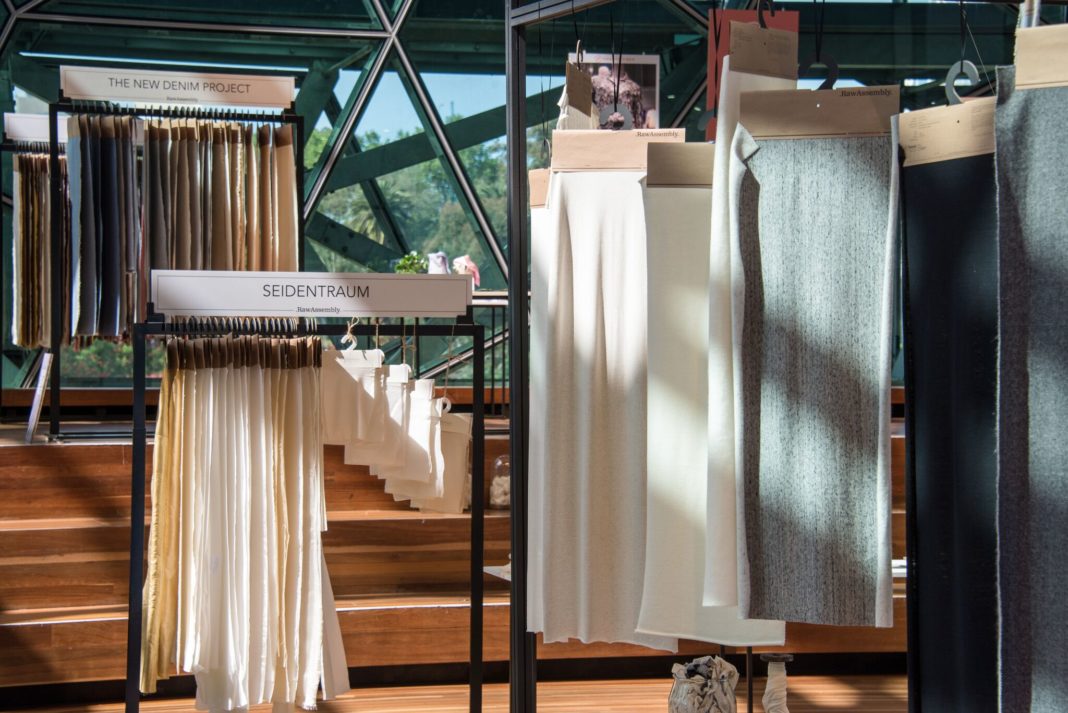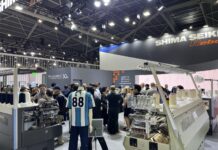In October 2019, Melbourne, Australia, hosted Raw Assembly’s bi-annual sustainable textile sourcing event. First covered by KIC in November 2019, the Post Show Report has now been released, revealing details, analysis and outcomes from the industry event.
Including a comprehensive industry speaker schedule combined with material showcases, the Raw Assembly event provides opportunity for designers and brands to source materials from suppliers adhering to circular design principles. The 36% increase in footfall from the April 2019 event indicates a gradually increasing interest in the implementation of circular design processes; a positive sign.
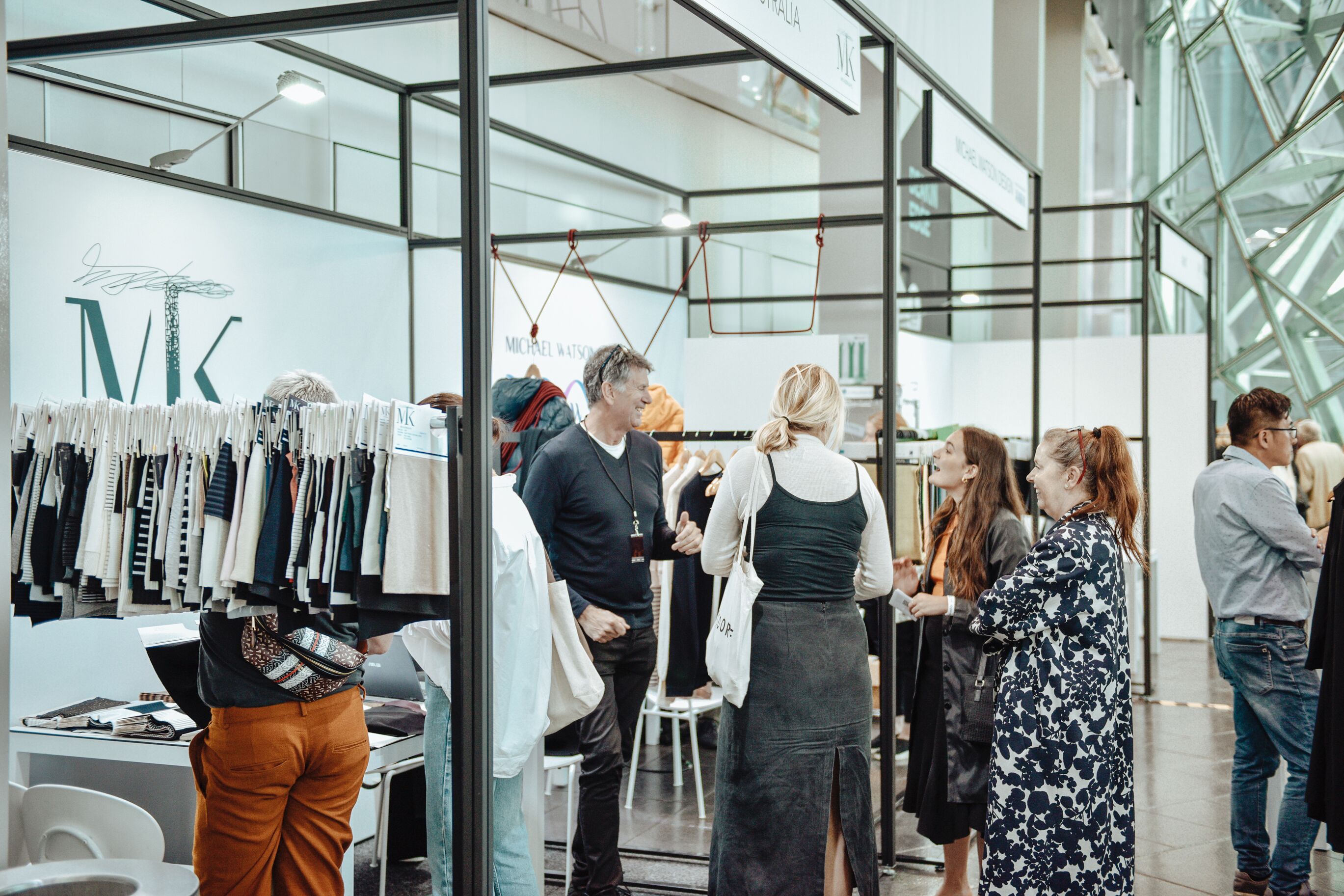
Ideology
Inspired by the ideologies of Michael Braungart & William McDonough’s book ‘Cradle to Cradle’, Raw Assembly values the ‘Law of Return’ as an inherent design ideology, rather than a ‘bonus action’ to be resolved post-production. Speaking on their core beliefs, founder Thea Speechley opened the event stating, “The concept of The Law of Return should underpin the work of sustainable sourcing”. The carefully curated selection of companies showcased embodied this belief through a variety of innovative approaches.
Industry Speakers
Integral to the event is the schedule of talks and panel discussions that takes place throughout. With 8 talks across the 2 days, speakers from Europe were able to save on their carbon footprints by presenting via live links.
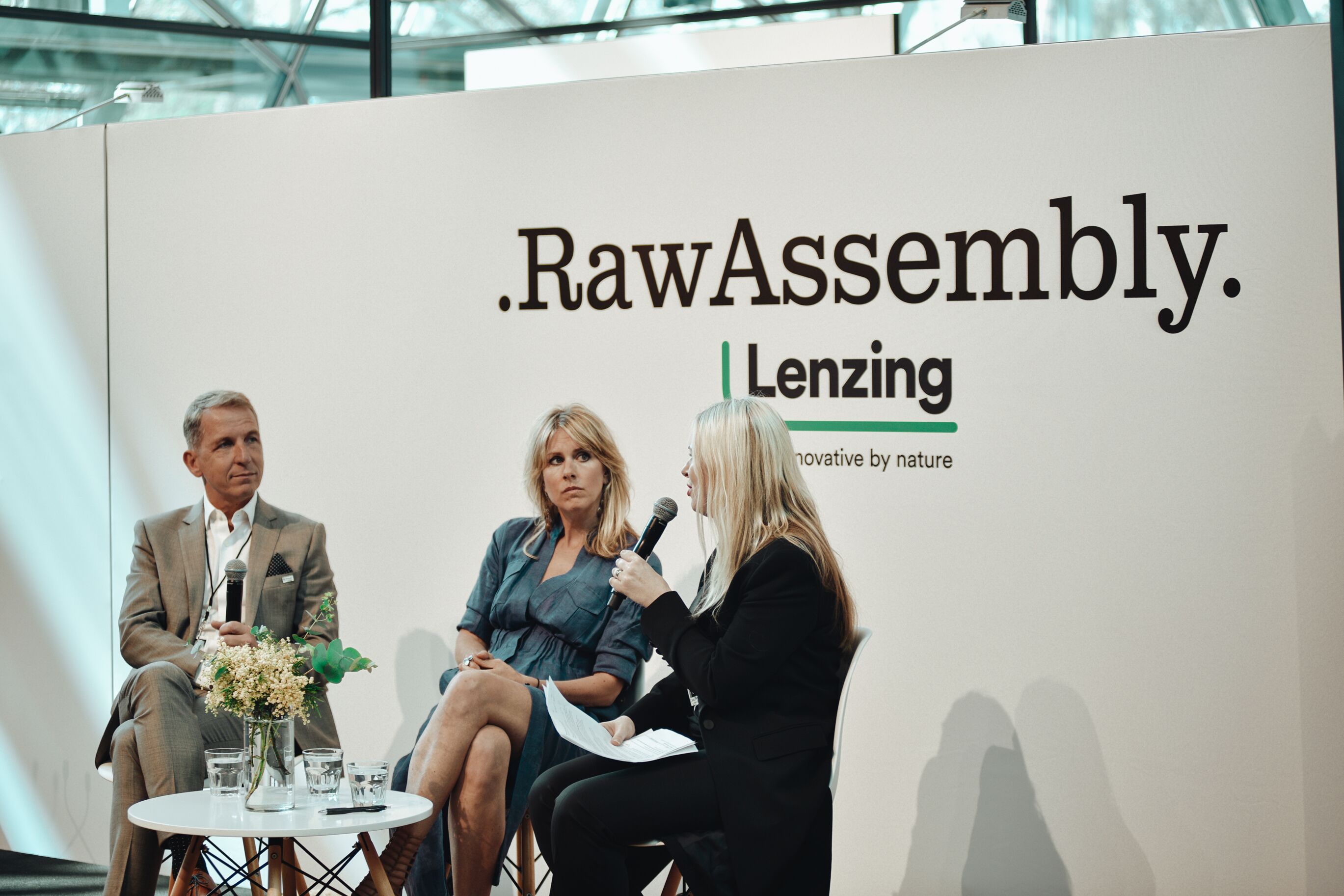
During an opening panel discussion led by Clare Press, Vogue’s sustainability editor, the tone for the whole event was set, as designer Kit Willow spoke of her rejection of toxic processes within garment production whilst protecting garment workers throughout the supply chain. Harold Weghorst, VP of Global Branding at Lenzing Group explained during the panel,
“For Lenzing, the driving factor is increased consumer awareness around big environmental issues such as plastic microfibres polluting our oceans, and the current focus on the fashion industry’s carbon footprint”.
Talks focusing on innovations in material supply chains covered protein and cellulosic fibres, with Norm Smith of Glenwood Merinos and Jim Gordon presenting their commitments to animal welfare, including non-mulesed approaches and regenerative agriculture.
Representing the cotton industry, Meriel Chamberlin, founder of Full Circle Fibres discussed the potential held within local textile supply chains. Professor Xungai Wang presented his ground-breaking work on the re-purposing of pulverized denim, illustrating application of the material in both medical and textile industry contexts.
Exhibiting Companies
74 companies exhibited their unique, inspiring approaches to circular design, addressing materials across the textile and manufacturing spectrum.
The Lenzing Group, an industry leader in setting global standards for wood-based botanical cellulose fibres, both sponsored and participated in the event which saw the launch of their ‘ECOVERO’ fibre into the Australian market. Lenzing Group is seeing an increased presence in Australian Markets as demand for circularity grows.
Nuremburg based industry leader in worsted yarn, Sudwolle Group showcased their ‘Betaspun’ of 100% biodegradable, durable, lightweight and abrasion resistant yarns.
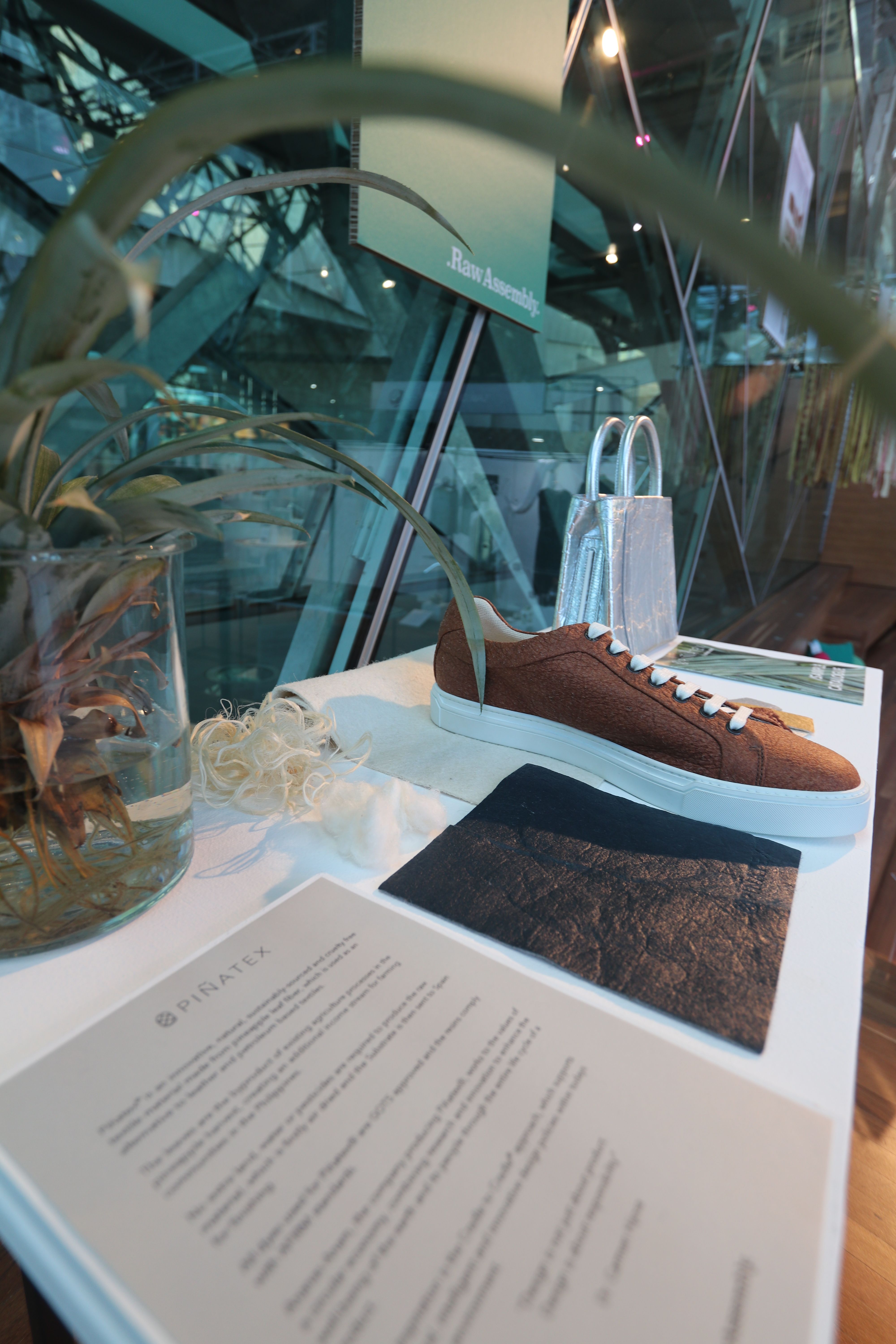
‘Crabyon’, a fibre created using the shells of crustaceans as a bi product of food industry waste was shown, revealing the hypoallergenic, anti-bacterial properties it contains, and its resistance to sweat and odour. The utilisation of waste from the food industry was also present in the collections shown by Desserto and by Ananas Anam’s Pinatex the former making a cactus leather alternative, and the latter using pineapple leaf fibre.
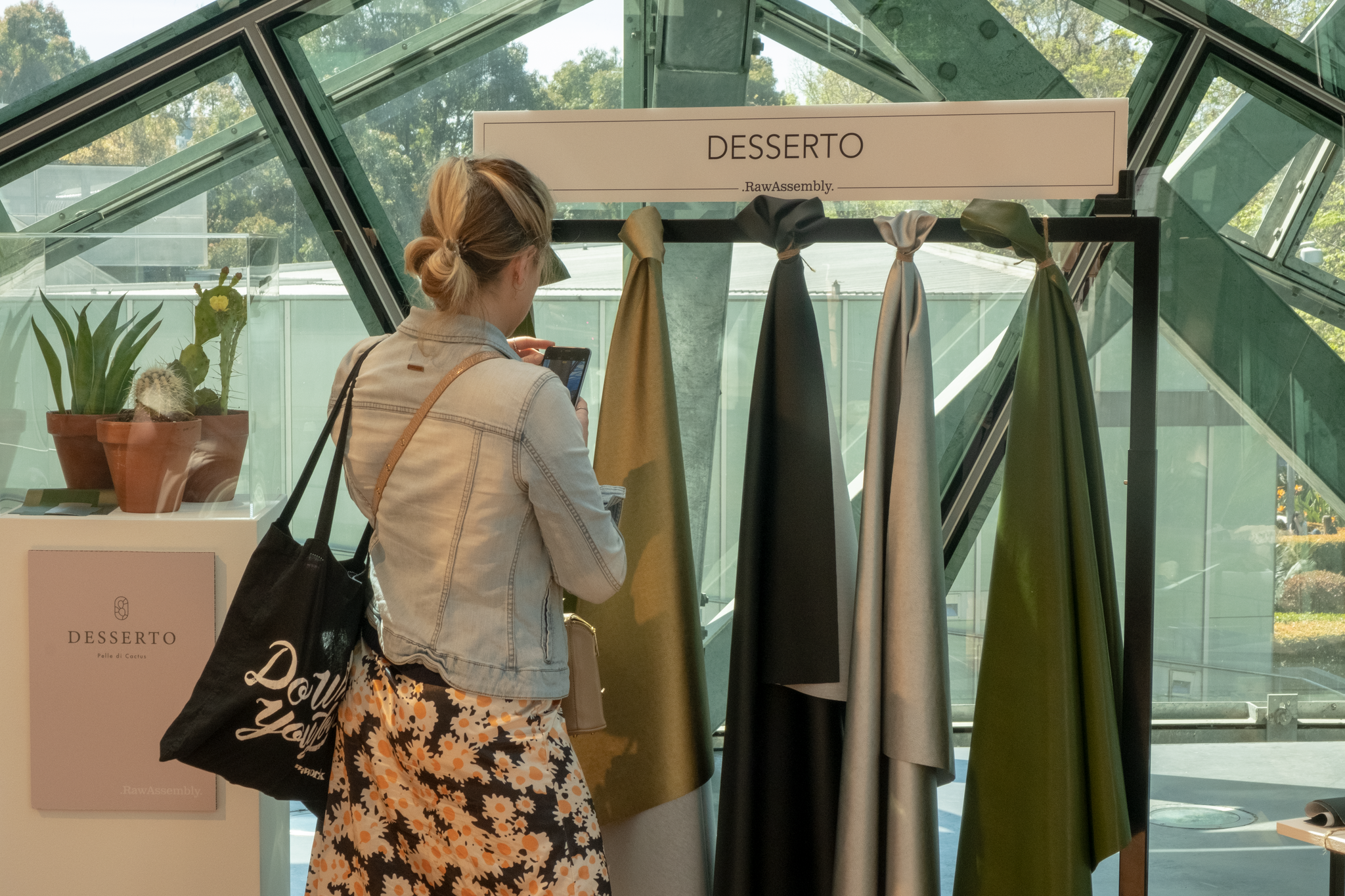
Dimplora presented their biodegradable, waterproof, fluorine free membrane for the outdoors industry. This can be applied to natural and synthetic fibres, and returned to nature without any toxic impact at the end of its lifecycle. Heat dissolving thread, which can facilitate disassembly in end of life stages for recycling was shown by Resortecs alongside Carolyn Raff’s sequins made from Algae.
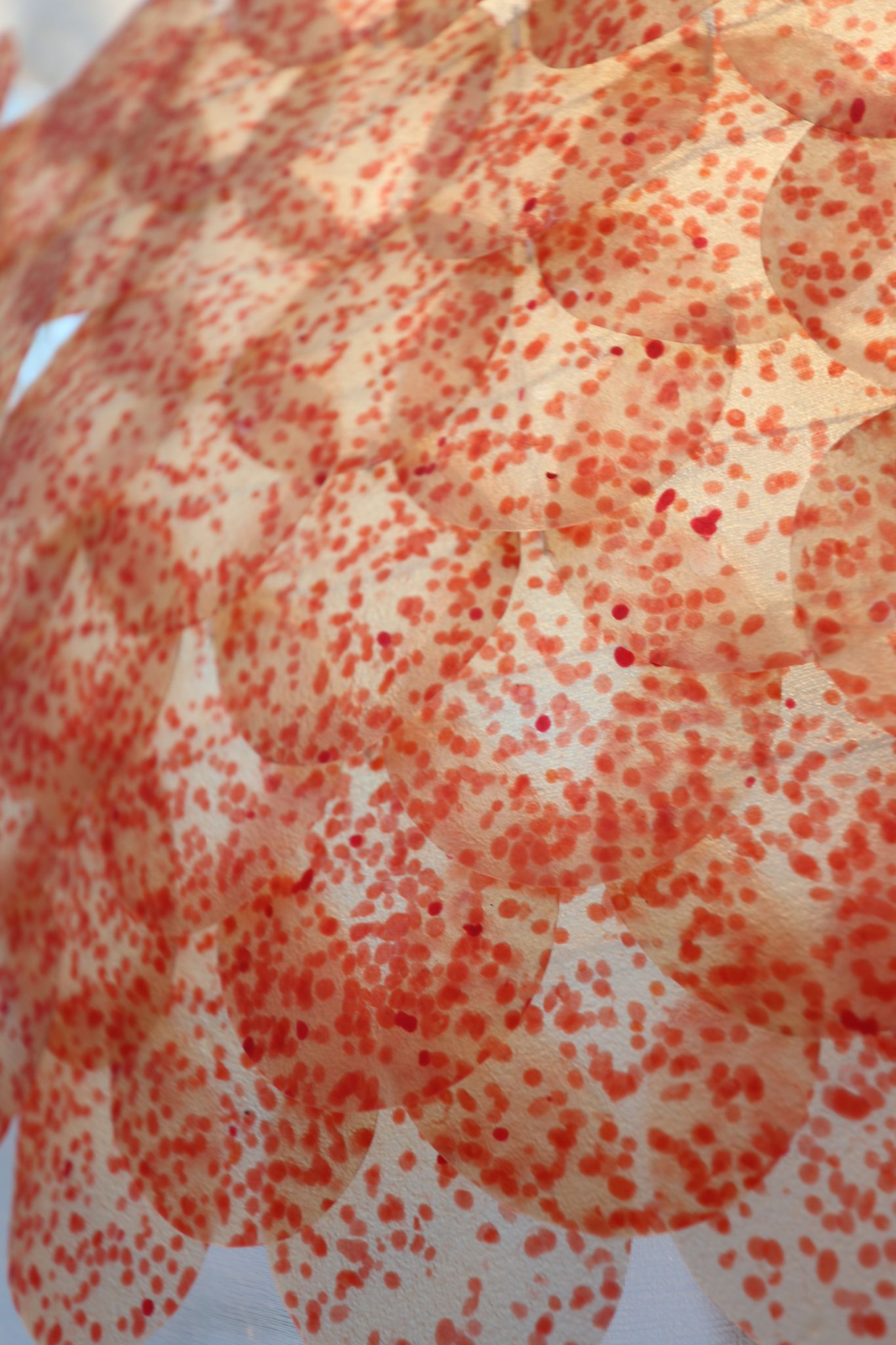
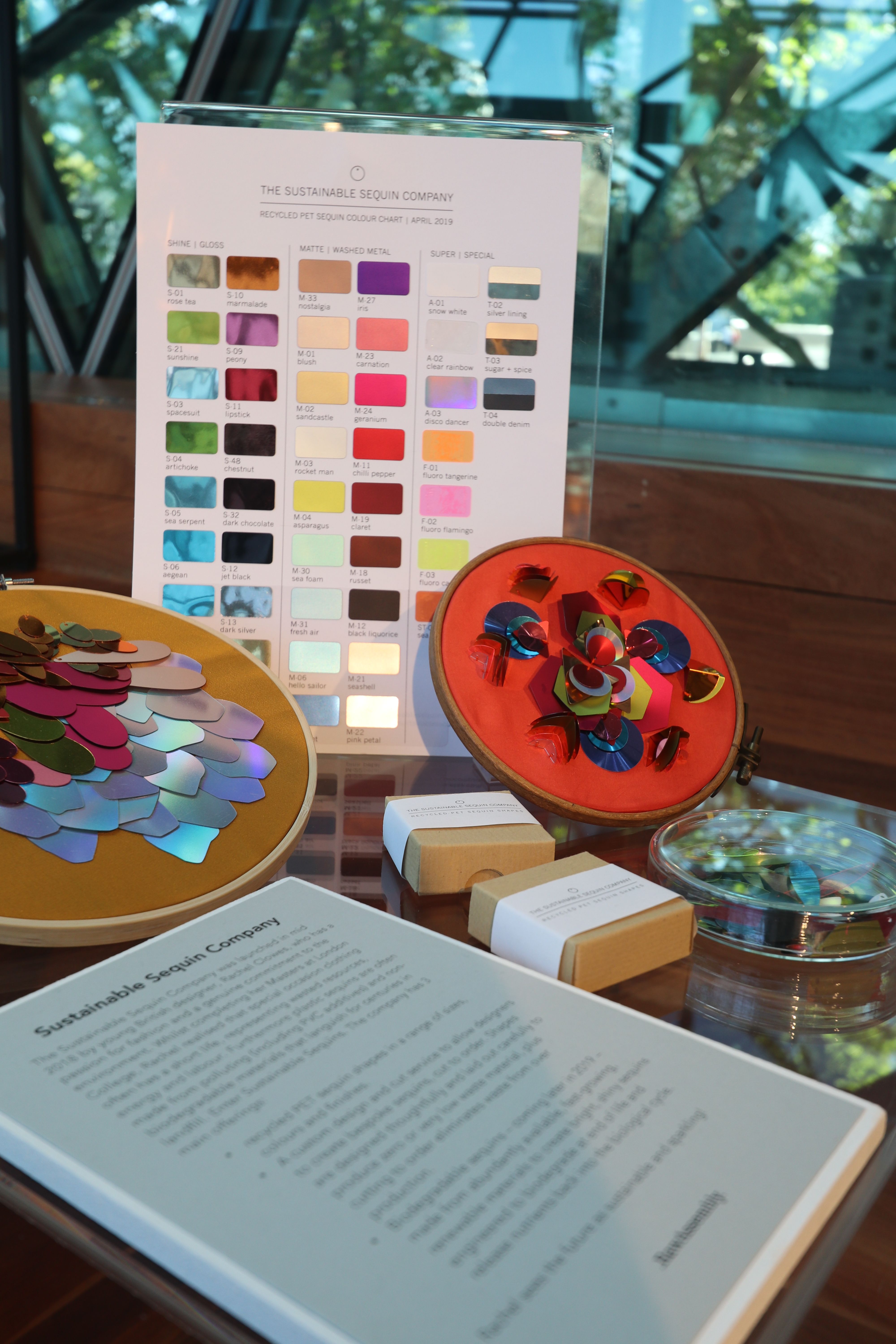
Companies from the ‘Fashion for Good’ and ‘Plug & Play’ accelerator programmes were there, as well as Hallotex, PureWaste and The New Denim Project from Guatemala- to name a few.
Fibres
Wool developments during the event centered on the creation of sustainability road maps, with a focus on non-mulesed wool certified by national standards such as The R.W.S (Responsible Wool Standard). Land management and animal welfare issues were identified through post show analysis as being key areas of inquisition from industry visitors, and key areas to address when campaigning for responsible progress in wool sourcing.
George Shen, Founder and CEO of Diyang Merino Textiles Ltd was quoted within Raw Assembly’s report explaining their company strategy, “One of the key points in our company’s current strategy is to focus on traceability, and the setting up of entire wool supply chains “from sheep to shop”.
The message that mulesing is unacceptable is beginning to gain momentum. Communication of a zero-tolerance policy from brands to their suppliers was identified as an important step in order to achieve mulesing-free wool as standard practice.
The potential of waste cotton was also a focus, exploring the possibilities held within cotton recycling and the creation of pre and post-consumer streams. Government regulation of the Cotton Industry to implement consistency and aid communications regarding sustainably, as well as the importance of introducing clear guidelines and labelling were highlighted as areas to develop within the report.
Supply Chain Transparency
Hybrid supply chains challenged current linear supply chains and suggested circular alternatives across the event. Raising awareness of how things could be, rather than embedding a reliance on how things currently are was prevalent. Patterns in production habits were identified during the event, with Raw Assembly finding that smaller brands most frequently looked for onshore production to form demand driven supply chains, whilst larger brands looked further afield to more established, efficient options.
Knowledge and ownership of supply chains was a recurring aim of industry guests, with transparency and traceability being a strong focus. Whilst the potential for economic efficiency held within transparent supply chains was recognised, utilising the narrative of production processes at the point of sale was identified in the post show analysis as a key motivator for brands to adopt sustainable practices.
Within the post show analysis, a recent report by the McKinsey Group was quoted, stating that internet searches for Sustainable Fashion had tripled between 2016-2019 in the US and Europe. Gradually, customer expectations are becoming a factor influencing purchasing habits, with increasing demand for knowledge of garment origins.
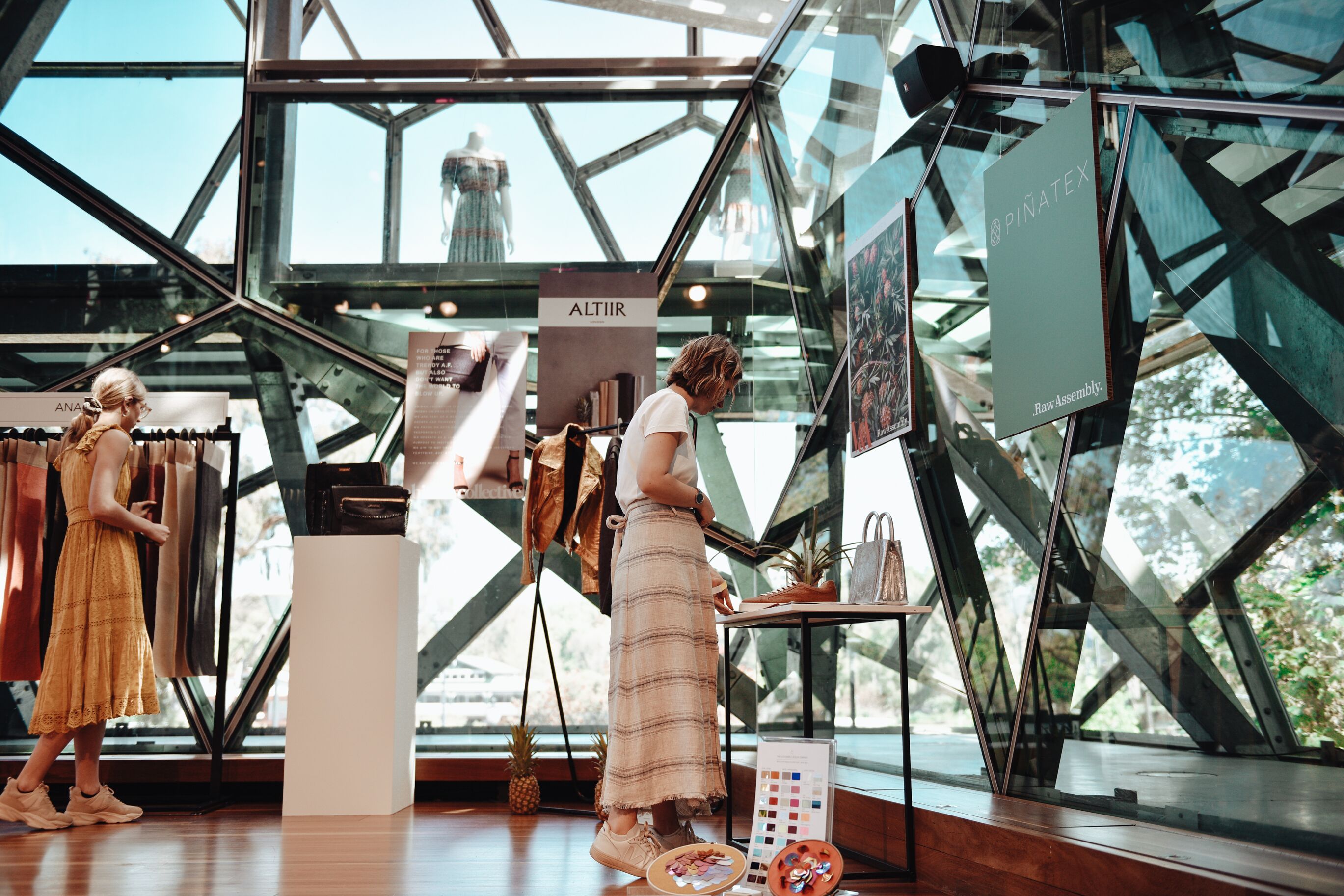
Lessons Learned
The post show analysis discovered top priorities to exhibitors and industry visitors were:
“Sustainable Raw Materials and Fibre Choices, Opportunities in Design, Transparency and Traceability, Hybrid Supply Chains and Purchasing and Customer Expectations”.
Raw Assembly has emphasised the importance of creating material libraries that contain viable, exciting options for sustainable materials from traceable and verified supply chains. Greenwashing from suppliers and brands can mislead, so creating strong material library resources with certified companies is essential for genuine progress.
The report detailed, “Brands are keen to make sure that fibres come from regenerative agricultural locations or closed loop systems that embrace best practice land management, environmental, water, energy and chemical management as well as animal welfare.”
Slow up take of these sustainability agendas from senior leadership and company boards was named as an inhibitor to progression in circular design. Furthermore, whilst intentions were identified to introduce take-back schemes, understanding of how to re-use materials and re-design waste when the onshore infrastructure does not currently exist, was also identified as a challenge industry processionals face.
Raw Assembly’s 3rd edition will be held in Sydney from the 7th-8th April 2020, providing further opportunity to network with suppliers who are implementing genuine sustainable practices in the textile industry.
Further Reading
https://www.rawassembly.com/copy-of-visitor-registration

Subscribe To Our Newsletter
Join our mailing list to receive the latest news and updates from our team.


